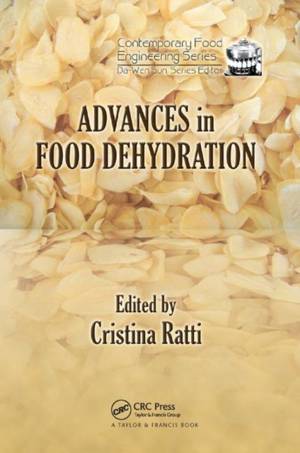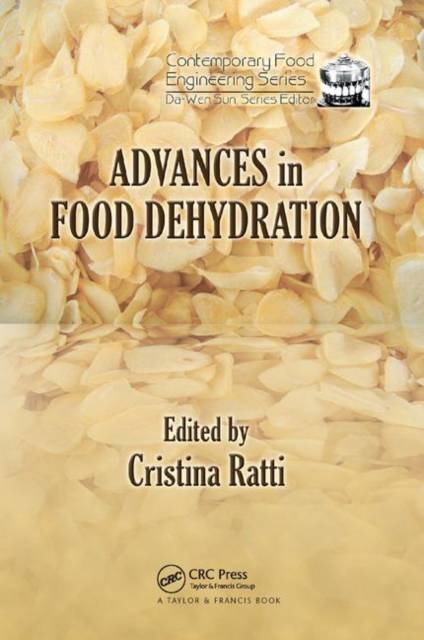
- Retrait gratuit dans votre magasin Club
- 7.000.000 titres dans notre catalogue
- Payer en toute sécurité
- Toujours un magasin près de chez vous
- Retrait gratuit dans votre magasin Club
- 7.000.0000 titres dans notre catalogue
- Payer en toute sécurité
- Toujours un magasin près de chez vous
Advances in Food Dehydration
Description
Comprehensive Assessment of This Globally Relevant Practice
As a centuries-old food preservation method, dehydration technology has advanced significantly in the past decades as a result of new methods, sophisticated analytical techniques, and improved mathematical modeling. Providing practical and expert insight from an international panel of experts, Advances in Food Dehydration encompasses these revolutionary advances and effectively supplies the knowledge base required to optimize natural resources and reduce energy requirements in order to meet growing demand for low-cost, high-quality food products.
Discusses Ways to Best Optimize Natural Resources
Under the editorial guidance of food engineering and dehydration authority Cristina Ratti, this resource addresses the three biggest challenges associated with food dehydration:
- The complex nature of food systems together with the deep structural and physico-chemical changes that foodstuffs undergo during processing
- The difficulty to define quality in quantitative terms and to develop appropriate control techniques
- The lack of realistic models and simulations to represent the phenomena
The book's well-developed chapters explain the structural and physico-chemical changes that food undergoes during dehydration, while discussing ways to optimize natural resources. In addition to describing non-convectional heating sources such as microwaves, infrared, and radio frequency, the text also examines the impact of drying on nutraceutical compounds, the bases of rehydration of dry food particles and the stresses on microorganisms during drying and their stability during storage. Advances in Food Dehydration is a user-friendly volume that concisely links the gamut of dehydration concepts into one cohesive reference.
Spécifications
Parties prenantes
- Editeur:
Contenu
- Nombre de pages :
- 467
- Langue:
- Anglais
- Collection :
Caractéristiques
- EAN:
- 9780367386368
- Date de parution :
- 19-09-19
- Format:
- Livre broché
- Format numérique:
- Trade paperback (VS)
- Dimensions :
- 155 mm x 231 mm
- Poids :
- 589 g

Les avis
Nous publions uniquement les avis qui respectent les conditions requises. Consultez nos conditions pour les avis.





